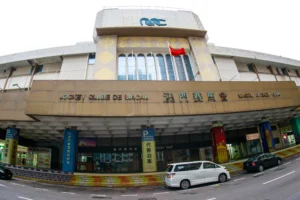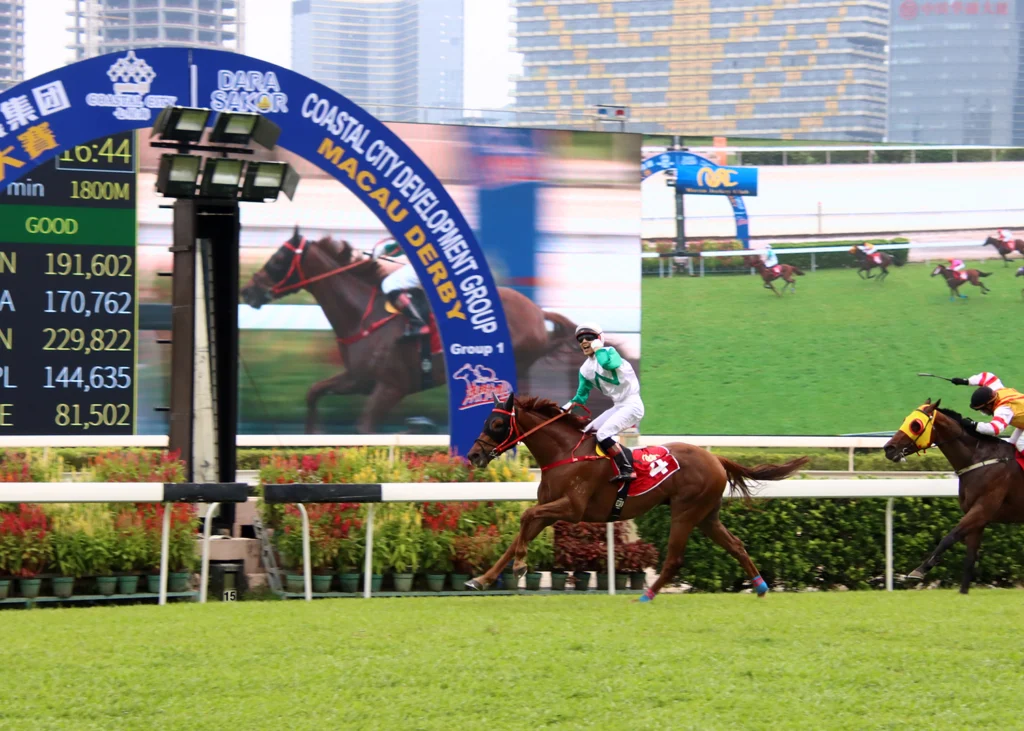After months of public discussion about the future of the MJC, this week it was finally confirmed that the racetrack in Taipa will indeed close, after almost 40 years in operation.
At a press conference, the spokesman for the Executive Council, André Cheong, pointed out that the concession, which had been extended for a further 24 years at the end of 2018, will end on 1 April this year. The Macau Horse Racing Company will now have until March 2025 to move its almost 300 horses out of Macau and resolve the labour situation of its more than 500 employees.
Cheong revealed that in 2023 the company requested the cancellation of its contract due to “operating difficulties”, a request accepted by the government by mutual consent. The termination does not imply the payment of any compensation by the operator, which only needed to write off around 150 million patacas in taxes owed to the Public Administration.
Under the agreements reached between the two parties, who began negotiations in the middle of last year, all the existing facilities and land currently owned by the horse racing operator will then be unconditionally returned to the government.
During a debate organised this week by Macau Business and the Rui Cunha Foundation, entitled “The New Gaming Concessions: One Year On”, the panellists also gave their opinions on this ‘death foretold’.
For Davis Fong, director of the Institute for Studies on the Gaming Industry at the University of Macau, the track was a relic of a time when Macau offered a wide variety of gambling activities.
“In Macau, about 20 years ago, we had horse racing, greyhound racing, lotteries and casinos, but in the end, casinos overtook all other legalised gambling products,” Davis Fong noted.
“We can see in the United States that every time there is a casino boom, there is an increase in competition and pressure on other gambling products, such as horse racing. It’s the nature of competition. What’s more, right next door to us, we already have the Hong Kong Jockey Club”.
In complete opposition to the local racecourse, the Hong Kong Jockey Club declared a record turnover of 304.8 billion Hong Kong dollars for the 2022-23 season, an increase of 5.1 per cent year-on-year, despite the effects of the Covid-19 pandemic.
In the same debate, consultant Niall Murray highlighted the significant difference in the investment made by the MJC and its counterpart in the neighbouring city. “The passion and will to continue was lost when Stanley Ho gave up the operation. I don’t think the operator was trying its hardest to have a profitable operation and keep it really vibrant,” said Murray.
Unfulfilled promises

The company is run by Angela Leong, wife of the late gaming tycoon Stanley Ho and also co-chairman and CEO of gaming operator SJM.
As a requirement for renewing the contract, the Club’s management promised to clear tax arrears within three years and invest 1.5 billion patacas to increase non-gaming elements, including a riding school, amusement parks, hotels, gourmet shopping centres, etc.
However, five and a half years after the concession contract was renewed, at the end of February 2018, the promised investment plan had still not been implemented. In the last annual report, Leong, chairman of the company’s board of directors, assured that the Macau Jockey Club would seize golden opportunities, setting diversified targets for development.
Last year it was reported that the Macau authorities had banned the operator from importing horses and accepting bets from outside the city. The authorities denied having discussed closing the track and eventually approved the Macau Jockey Club’s 2023/2024 season.
This week MJC revealed that it had accumulated losses of 2.5 billion patacas, with Rui Cunha, director and company secretary, telling a press conference that “the space for the development of horse racing in Macau has been continually reduced” and the three years of the pandemic have meant that the company remains “in a loss-making situation”.
However, for economist José Duarte, the big surprise is not the end of the concession, but the 24-year extension offered by the authorities in 2018, considering the company’s well-known financial problems.
Jorge Godinho, a researcher into the industry and the history of local gambling, considered the government’s decision to terminate the concession contract to be “the only possible one”.
“When demand is non-existent or insufficient, and the operation of a certain type of gambling is not sustainable, the only thing left to do is to face reality and close down the business,” said the researcher in an opinion article published in the newspaper Hoje Macau.
In the same debate at the Rui Cunha Foundation, Rui Pinto Proença, lawyer and managing partner of MdME, pointed out that the most important thing now is to see what use should be made of the almost 404,000 square metre site, which will revert to the government free of charge.
The authorities have already promised to carry out studies into its future use, and have guaranteed that the area will not be used to build more casinos or other gambling operations.



